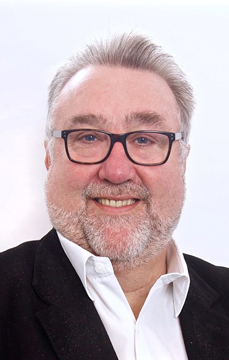Fair Data
Mydex
David Alexander CEO of Mydex talks to MRS about embedding good data practice with Fair Data as well as effectively preparing for the GDPR.

What does Mydex do?
Mydex CIC helps individuals get stuff done online, in a trusted way. They can collect, accumulate, organise, analyse and share the data about their lives, under their control. This could help them do things like prove who they are or that they are entitled to something, and makes it easier for organisations to interact and engage with their customers, citizens, members - while respecting their privacy and personal data, resulting in trust and benefits for all involved.
How did Fair Data accreditation change how you did things at Mydex?
Just as it is at the heart of Fair Data, trust is a vital element in the Mydex Platform. It was a natural step for us to become Fair Data accredited, as well as the very first Fair Data enabler, as we seek to build up and reinforce trusted online interaction for both individuals and organisations.
We saw significant alignment with our values in the 10 Fair Data principles, so felt confident when applying for accreditation, and delighted to achieve it for the third time this year. We are familiar with stringent auditing processes - having completed similar steps to become ISO27001 certified for information security management - and were pleased to see a thorough evaluation of Mydex CIC's practices and policies as part of becoming Fair Data accredited.
You are also a Fair Data enabler - what does that mean in practice?
As the first Fair Data enabler, Mydex CIC seeks to help other organisations to achieve Fair Data accreditation. We believe our platform can accelerate that process, offering organisations new ways of engaging with their customers, citizens, members, regardless of sector or size - all whilst respecting the Fair Data principles and ensuring compliance with regulations both existing and upcoming, such as the GDPR. Having gone through the same process of Fair Data accreditation ourselves, we have a real insight into where and how we can make a difference to any organisation.
Would you recommend it to other businesses who work with data?
We are in the midst of a paradigm shift. The digital ecosystem is developing at a rapid rate, with more and more individuals using the internet to get things done. Despite this, there is a rising tide of concern that organisations are not handling people's personal data in the way that they should, and this leads to mistrust of even the biggest and most prevalent of online services.
We feel it is vital to establish trusted, recognisable marks which assure individuals that the service they are using handles their data fairly. It's not about them reading complex terms and conditions, it's about assuring them that they can get things done online, in the confidence that their data is not being misused or marketed without their knowledge.
Businesses are beginning to recognise this fact, and seek out certifications like Fair Data which reinforce an organisation's dedication to the correct handling of personal information. Fair Data certification is a vital piece in the complex puzzle that is trusted online interaction.
Does your Fair Data accreditation mean you feel prepared for the GDPR regulations?
The GDPR will be an agent for change in European data protection law, and it is concerning a lot of organisations. As digital trust moves to the front and centre of many organisations' strategies, we expect to see many organisations striving to achieve compliance in - including Fair Data. A move to embrace this evolution in the digital ecosystem is likely to be the shift that accelerates those companies to be invaluable to millions of individuals, whilst not sacrificing the values of fairness and transparency that are vital for loyalty and engagement in the digital age.
Get the latest MRS news
Our newsletters cover the latest MRS events, policy updates and research news.










